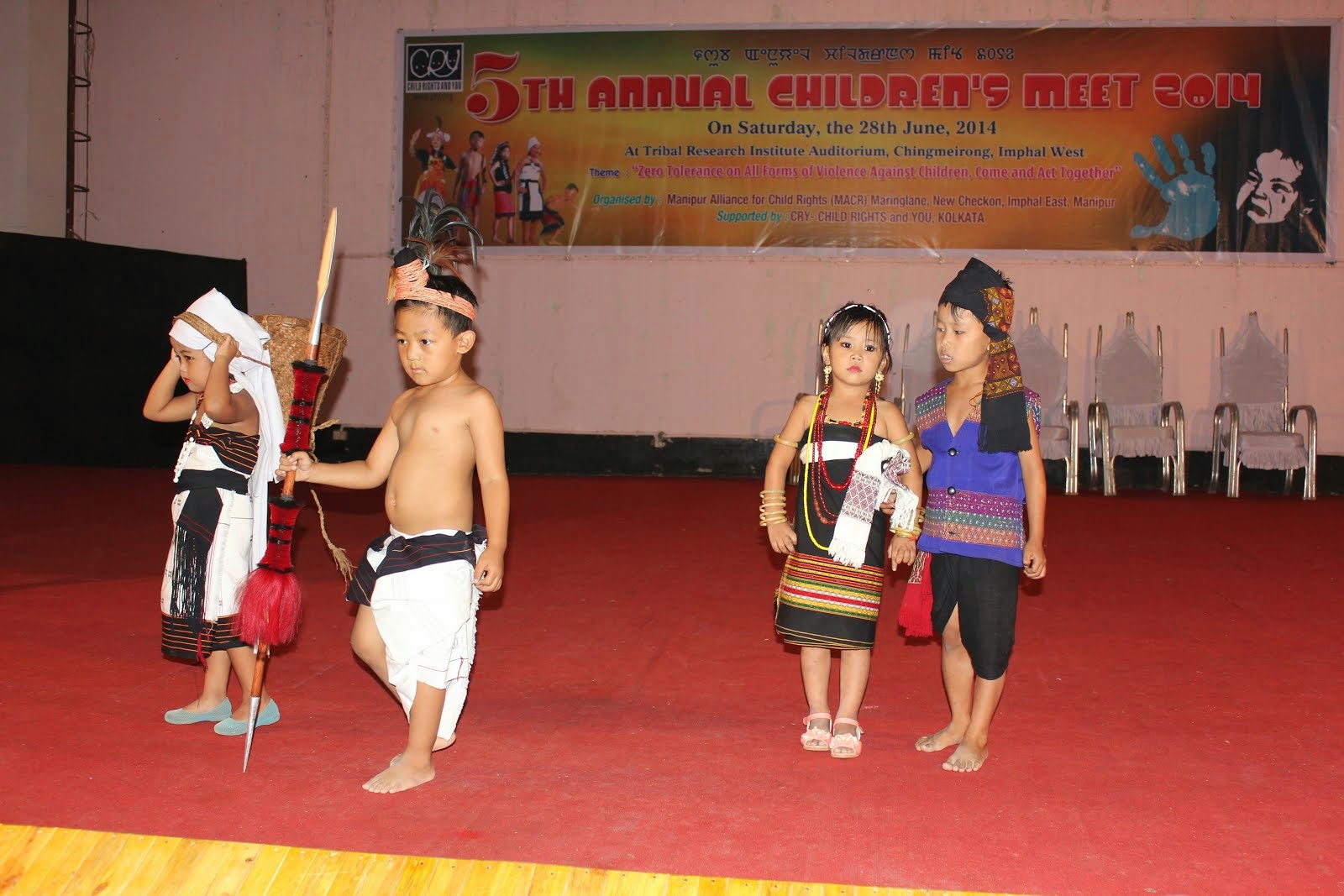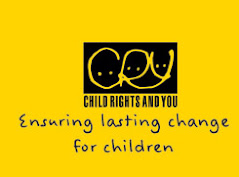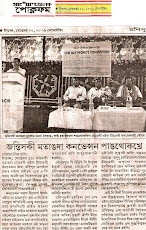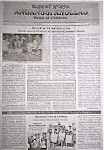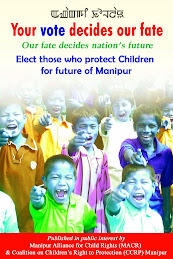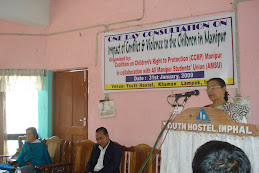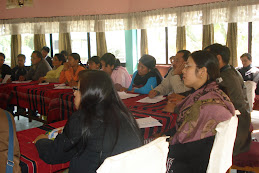By Hrishikesh Angom
IMPHAL, Jan 8: The highest number of child-trafficking cases in Manipur was recorded in 2010 last year with as many as 139 children from the state found trafficked to other states in the name of giving free education and jobs.
There were cases of 97 trafficked children in 2009, 22 children in 2008 and only five children in 2007.
In the month of January, 2010, 54 boys from Tousem sub-division in Tamenglong district were found trafficked to Tamil Nadu and later rescued by the volunteers of Child Welfare Committee (CWC), Tirunelveli from a children home run by one Roman Catholic Missionary, Immanuel Christopher.
The boys were admitted to the children home through one local agent, N. Paul from Tamenglong who had taken Rs 6000 to Rs 7000 from each child with the false promise of giving free education. The boys were kept in miserable conditions with no proper food and education at the children home. They were also harassed both mentally and physically by the warden of the home. The culprit Immanuel has been jailed but the local agent Paul is still absconding.
Another 17 children including eight boys and nine girls from Bishnupur were rescued from Ritz Children Home, Chennai in January. The children were reportedly trafficked to Chennai through local agents, namely Samom Herojit and Keisham Rakesh after taking Rs 10,000 from each child. The girls were sexually harassed at the chidren home.
There was also another case in January, last year in which a 17-year old girl was reportedly trafficked to Tamil Nadu by four women, namely Thangjam Purnima, Salisa, Khuraijam Taruni and Leishangthem Sanarei in the name of giving vocational education. Later, the girl was rescued and the culprits were detained under National Security Act (NSA).
In the month of February, 2010, three children including two boys and one girl were trafficked to Chenna and later a combined team of CWC, Chennai and CWC, Bishnupur rescued the children from Ritz Children Home, Chennai. The trafficked children were found in a deplorable condition with clear signs of torture and harassment. The local agent in this case was Miss D. Lotus from Chandel.
In the month of April, 2010, 27 children including 18 girls and nine boys from Imphal East, Imphal West and Bishnupur were reportedly trafficked to Tamil Nadu by one Henry Ostrin and later rescued by the officials of Social Welfare Department and Child Line Imphal.
In the same month, one girl was reportedly trafficked to Chennai as domestic helper by one Angoubi from Lamsang.
In the month of May, 2010, three boys from Sekta and Keinou were intercepted by CWC Imphal East and Bishnupur at Imphal Tulihal Airport while they were being trafficked to Guwahati by two women in the name of offering jobs.
In the month of June, 2010, 12 children including nine boys and three girls were trafficked to Tamil Nadu.
In the month of July, 2010, 12 children from Bishnupur were trafficked to Chennai by one Herojit from Ithing.
Another one girl from Bishnupur was trafficked to Kolkatta as domestic worker.
In the month of August, 2010, four boys from Tamenglong, Imphal East and Imphal West districts were trafficked to Haryana through one Kalyan Ashram, Manipur.
In the month of September, 2010, three children including two girls and one boy from Churachandpur were trafficked to New Lambulane by the step-mother of the children, Nemkholhing.
Concerning the grave situation of child-trafficking in the state, the coordinator of Coalition on Children’s Right to Protection (CCRP), A. Chinglemba stated that the state government should take up concrete measures to uplift the education system and generate more employment for the youths if the menace of human-trafficking is to be tackled. Mere vigilance of the police and other officials will not help much to counter the problem of trafficking. It is the overall development in socio-economic conditions of the people that will help to reduce the number of human-trafficking cases in the state, he noted.
Chinglemba further said that poverty stricken people are often the victims of human-trafficking and so the government should take up steps to provide them good education and help to generate employment. The failure of education system and unemployment are the major factors for human-trafficking.
The mode of human-trafficking in the state is changing from children to women. Many young girls from the state have been reportedly engaged in immoral activities outside the state including foreign countries like Thailand, Malaysia and Singapore. Most of these women have been taken away from their home by some agents in the name of rendering good jobs, the coordinator of CCRP stated.
He also appealed to the people to be sensitive towards human-trafficking and make the New Year 2011 a happy and prosperous year free violence and human-trafficking.
Sunday, January 9, 2011
2010 saw highest number of child trafficking cases in Manipur
Sunday, January 2, 2011
CCRP calls upon CM to look into child rights violation cases
IMPHAL, Dec 30: The Coalition on Children’s Rights to Protection (CCRP), Manipur has drawn the attention of the Chief Minister, O Ibobi Singh for immediate intervention and to deliver justice in the recent incident of grave violation of child rights in Manipur.
In this regard an official representations was submitted to the Chief Minister O Ibobi Singh by the CCRP recently on December 28, mentioning the reports of findings made by the organisation relating to the recent incidents of child right violations particularly in two of the Jawahar Navodaya Vidyalayas (JNVs) located in Manipur which need interventions from the National Commission of Child Rights in Manipur.
The official representations of CCRP, Manipur also recalled that, on November 29, last month deceased Chingakham Brington Singh 17, son of Ch Ibohal Singh of Kakching Makha Leikai Naodam Pareng of Thoubal district, a student of class-XII committed suicide and Kshetrimayum Ghanapriya Devi, 17, daughter of Ksh. Memcha Devi of Kakching Khunou Leikai, Cooperative Pareng Thoubal district, of the same class is under mental trauma after having been humiliated and mentally harassed by the school authorities of JNV, Umathel near Kakching Khunou, Thoubal district. Yet in another case of police brutality involving JNV students of Class-XI &XII of JNV, Khumbong, Imphal West district in which the students were allegedly canned by police in the school campus on the night of December 5 last.
The representation further mentioned that, the above cases occurring within a week involving two JNVs located in the state is an alarming trend and Coalition on Children’s Right to Protect (CCRP), Manipur is unduly concerned and immediately carried out two fact finding missions in the two JNVs for cases of violation of child rights by the school authorities and state police.
The official representations of CCRP, Manipur has also enclosed the reports of their recent findings to the cases and it observed that the way the school authorities had handled the cases irresponsibly and non child friendly. Since the school authorities failed to cross verify the facts of the incident or the explanations from the eyewitnesses on the issues of two students of JNV Umathel they are responsible for the unfortunate suicide committed by the humiliated student. In the other case of JNV Khumbong, instead of proper enquiry into the incident, the police behaved in a brutal way of physical and mental harassment to the students of JNV Khumbong. These are the vivid examples of child rights violation in the schools. The Dignity and self respect of the students were seriously hurt by the attitudes of the school authorities and state police.
After explaining all the facts, the official representation of the CCRP made their submissions that, the above cases are clear incidents of child right violations which gravely undermine the dignity, self respect, sentiment and emotion of the children and requested CM to intervene in the JNV Umathel suicide case and police brutality to the students of JNV Khumbong. Stern action is requested to deliver justice to the bereaved families of the boy and the traumatized girl student and also the humiliated and brutalized students of JNV Khumbong, so that such incidents of child right violations are not repeated in future.
Further the official representation has also drawn the attention of Chief Minister O Ibobi Singh to take up necessary action as per the National Commission for Protection of Child Rights (NCPCR) guidelines on prohibiting corporal punishment and also the Ministry of Women and Child Development’s guidelines, and ruling of Supreme Court (December 1, 2000) banning the corporal punishment. And it has further urged and proposed the government to give directions to all concerned authorities including educational institutions that a Child Rights Cell should be set up in every school so that the children could lodge their complaints with facilities of Child Counseling and finally requested the Chief Minister of the state to set up State Commission for Protection of Child Rights without further delay. This is in view of the increasing trend of child right violations in the state including child trafficking, child labour, child soldier, child abuse, atrocities to children living with HIV/AIDS, the official representation of CCRP, Manipur added.
Monday, December 13, 2010
MACR approach NCPCR for intervention and justice to JNV student suicide case
IMPHAL, Dec 11: The Manipur Alliance for Child Rights MACR, has drawn the attention of National Commission for Protection of Child Rights NCPCR to intervene and deliver justice to the recent incident of suicide of a student of class XII Science of Jawahar Navodaya Vidyalaya, Umathel Thoubal district on November 29 last month.
In an official memorandum of MACR submitted to the chairperson, NCPCR Dr Shantha Sinha yesterday, elaborated that the victim of the corporal punishment meted out by the authority of JNV, Umathel Thoubal district, Chingkham Brington, 17, son of Ch Ibohal of Kakching Makha Leikai Naodam bazaar committed suicide and very suicidal case has been taken as an example of practicing corporal punishment and abetment to committing suicide of an innocent brilliant student.
The memorandum further recalled that, on November 29 last the deceased, a student of class – XII science, of JNV, Umathel Thoubal district, engaged into a friendly conversation with one girl student inside the classroom at around 9am some minutes before the class hour. On seeing the duo already inside the classroom, some classmates decided to make fun of the situation. They mokingly said, ‘We would not let you come out from the room’ and shut up the door of the room from outside. Brington also reacted with flash of humor and said, “Then, we would not allow you all to enter inside” the same door was shut up from inside.
It further recalled that, incidentally, one Chongtham Babita, one of the teacher, came there, however, she could not sense the humorous situation. Rather, she interpreted the situation very differently and charged the two students inside the room of indulging gross moral misconduct. Surprisingly, the said teacher did not listen to the statement and clarifications given by the eyewitness students who stood around the classroom. She even slapped twice to a student who tried to convince her about the truth behind the incident.
The official memorandum further mentioned that, instead of enquiring the matter calmly, Chongtham Babita immediately rushed to the principal and lodged a complaint against the two students. The principal also did not listen either statement of the eye witnesses or explanations from the two students in question. Chongtham Babita the teacher, scolded the two with accusation and abusive words continuously. Mayengbam Raghumani, the principal took a harsh decision and sent back the two students to their respective homes at around 11.30 am of the same day. On the other hand, student Brington, who could not bear the humiliation meted out to him in presence of his classmates, committed suicide at a nearby place at his village, on the same day.
The memorandum of the MACR further mentioned that after a fact finding visit, MACR is of the opinion that the opinion that the way the school authority dealt the case was totally non child friendly, stigmatizing, and unfair. Since school authority did not take time to consider either for cross verification with eyewitness or self explanations from the two students, it was a stark example of overriding the principles of fair ahd humane dealing with juvenile or child. Dignity and worth of the said two students were seriously hurt by the humiliation meted out by the school authority. Therefore, the MACR requested chairperson of the NCPCR to intervene the JNV Umathel suicide case, in order to deliver justice to the bereaved family and not to repeat such case of corporal punishment which gravely inflicting dignity, sentiment and emotion of children.
The memorandum further urged to take up necessary stern action, so that the NCPCR guidelines on prohibiting corporal punishment and the subsequent letter to chief secretaries of the state also the Ministry of Women and Child Development’s Guidelines and ruling of the Supreme Court on December, 1 2000 banning corporal punishment, are really followed and properly implemented in the state of Manipur.
The memorandum further urged specifically, to give direction to all concerned authority of educational institutions that a child rights cell/forum having facilities for child counseling in every schools is set-up so that children could lodge their complaints.
Finally, the official memorandum of the MACR requested the chairman NCPCR to give directions to the state government again to set up State Commission for Protection of child rights without further delay, since many child rights violation cases including child trafficking, child soldier, child abuse, atrocities to children living with HIV/AIDS are occurring so frequently in the state. Besides, the rights of children to free and compulsory Act, 2009 cannot be properly implemented without the state Commission for Protection of Child Rights in the trouble torn Manipur state, the memorandum added.
Tuesday, December 7, 2010
CCRP fact finding team on JNV student death case
Imphal, December 06 2010: A fact finding team comprising members of the Coalition on Children's Right to Protection (CCRP) Manipur and Manipur Alliance for Child Rights (MACRT) led by CCRP Core Working Group member AK Sanaton today started investigation into the suicide incident of a student of Jawahar Navodaya Vidyalaya, Umathel in Thoubal district.
Seventeen year old Ch Briton, a student of the JNV Umathel, committed suicide on November 29 allegedly after he was scolded by the teachers on the charge of sleeping together with a girl student lodging in the hostel of the same school.
Taking serious note on the suicide of the boy, the fact finding team of the CCRP Core Working Group today started investigating into the incident to find out the truth behind the student committing suicide.
The team recorded revelation made by the families of the victim student and the girl who was charged of sleeping together with the deceased boy, their close friends in the school, officers of the police station concerned, principal and teachers of the school as well as representatives of the Parents' Association during the visit.
During an interaction with, Additional SP Thoubal, Th Shyamsunder said that police registered an UD (Unnatural Death) case and investigating into the case.
Police has so far taken statements of the principal, teachers and girl students of the school and also examining the post mortem report of the dead body.
If any suspect of outside influence in the death of the student, police will convert the UD case into an FIR case.
He also informed that Thoubal DC has already ordered a magisterial inquiry into the death of the student.
Kakching SDC has been entrusted to conduct the inquiry.
Convener of the Manipur Alliance for Child Rights (MACR), Keisham Pradipkumar who was part of the fact finding team observed that while imparting education to the students, teachers should not give physical and mental violence to them.
Teachers and school managements are seemed to forget this at certain instances.
Right to education not fully implemented
Imphal, December 05 2010: Even though the Right of Children to Free and Compulsory Education Act or Right to Education Act (RTE) was extended in the state too, children are yet enjoy the same as government is yet to take up required steps to implement the Act.
The Act passed by parliament on August 4, 2009 describes the modalities of the provision of free and compulsory education for children between 6 and 14 in India under Article 21-A of the Indian Constitution.
India became one of 135 countries to make education a fundamental right of every child when the act came into force on 1 April 2010 .
However, even after the six months time given by the Centre to the states for taking up necessary works for the implementation of the provisions of the Act, the work remains unimplemented till date.
The six month period given by the Centre expired in October.
Even after the expiry of the deadline, state government has neither made the rules needed for implementation of the Act nor adopted the Central rules which the state can adopt for some times till the state's own rules are framed.
The state commission for protection of child rights which the state government is to set up to overlook the implementation of the Act and to deal with cases coming up from time to time regarding the abuse of the children's rights is also yet to materialize.
The setting up of the commission is a must under section 14 and 24 of the provision of the Act.
Among the states in the northeastern region except Assam and Sikkim no other states have established the commission.
In the two states, functioning of the commissions have already started.
As there is no authority to deal with the complaints against violation of rights of the children under the Act, complaints are to be lodged at the National Commission for Child Rights Protection.
The state advisory council for smooth implementation of the rights to education is also yet to be set up.
Even notifications inviting suggestions from the general people and other concerned have not been issued till date.
Steps for declaring local bodies like the panchayat, municipal councils and village authorities as local authorities for looking after the implementation of the Act are also yet to be taken up.
With regard to how far the children of the state enjoy the right to education, convener of the Manipur Alliance for Child Rights (MACR), Keisham Pradipkumar said that MACR had submitted a memorandum to the state Education minister on September 20 urging him to take necessary steps for effective implementation of the Act.
But, no such necessary action has been taken up so far, he said insisting that as the Act is a constitutional right, there is the need for an effective implementation of the Act.
Children are to enjoy the right fully.
He also suggested that while framing the rules for the state, children who are victims of armed conflict, affected and infected by HIV/AIDS and should be taken into account.
Special provisions should be added so that special care can be taken up for them.
Children living with HIV, AIDS in Manipur
Eleven-year-old Tina, who is HIV-positive, contracted measles and had to be taken to the far-off Imphal General Hospital. After initial treatment and medication was administered, the doctors referred her to an isolation ward of a neighbouring hospital.
When Tina and her mother arrived at the hospital, they found the isolation ward had been converted into staff quarters. So Tina returned home though her weakened condition demanded hospitalisation.
Consequently, she could not access the anti-retroviral therapy (ART) course either. She now lives in the shadow of death, without access to the only medication that promises survival.
According to the World Health Organisation, ART consists of the use of at least three anti-retroviral (ARV) drugs to maximally suppress the HIV virus and stop the progression of HIV disease.
Huge reductions have been seen in rates of death and suffering when use is made of a potent anti-retroviral regimen. The ongoing conflict within the state often leads to curfews and restrictions on movement, in turn cutting off access to ART.
Frequent shutdowns and blockades called by different actors add seriously to the problem. For HIV-positive children, it results in sporadic supply of medication to the hospitals and healthcare centres.
"Only two of the state-specified seven hospitals that offer ART are regularly stocked with the necessary medication," says Dipankar Majumder, director, development support, Child Rights and You (CRY).
"The hospital in Imphal gets overcrowded because people from all across the state come to it in the search of treatment."
CRY's Ashim Ghosh, who also works in the region, adds: "Patients have to travel for up to 40 km, in a place where public transport is non-existent, to access the central hospital. Even then, care is not guaranteed."
Staff absenteeism, especially in remote districts, is common, due to the frequent outbursts of violence. This means that even when people from remote areas manage to make the expensive trip to the city to get their monthly stock of ART medicines, they cannot always get a health check-up at the same time.
"The importance of a stable education environment as a nurturing setting in which children can be taught about HIV/AIDS is underrated. Schools can be, and often are, a place for peer-to-peer learning, myth-breaking and monitoring the spread of the disease in key populations at higher risk within the local community," says Majumder.
Lack of access to healthcare and education are not the only struggles in the lives of Manipur's HIV-positive children. Efforts to change people's existing perceptions of the disease remain woefully unaddressed.
The stigma attached to HIV and AIDS is still widely prevalent across all sectors of the Manipuri community.
There is little evidence pointing towards concentrated efforts by the government to address the issue of children living with HIV.
CRY partner CCRP (Coalition on Children's Right to Protection) works extensively to influence policies to benefit children in Manipur. It says that there is no adequate provision for shelter, education and food to deal with the emerging issues.
Key figures of the number of children living with HIV in India are not officially published. HIV-positive children don't even feature as a category in the Manipur AIDS Control Society (MACS) 2007 Sentinel Surveillance report on the rate of HIV prevalence among various categories of population.
Even though Manipur was the first state in the country to have its own policy statement on AIDS, it has yet to develop a comprehensive plan to provide support and protection to children, both infected and affected by the AIDS epidemic.
"The situation of children living with HIV and AIDS cannot be separated from the other challenges that children in general are coping with in the region," says Yogita Verma Saigal, director, CRY.
Read more: Children living with HIV, AIDS in Manipur - The Times of India http://timesofindia.indiatimes.com/life-style/health-fitness/health/Children-living-with-HIV-AIDS-in-Manipur/articleshow/7022481.cms#ixzz17SJq96dE
Monday, November 22, 2010
With 36, 372 tested HIV positive, situation in state still face grim
IMPHAL, Nov 19: A one day constituency level programme on behaviour change and communication on HIV & AIDS was held today at the Irabot Memorial Hall, Chalou Lamlai organized by the Manipur Legislators’ Forum on HIV & AIDS, MLFA.
The awareness programme was attended by Th Lokeshore Singh, Speaker in charge of the Manipur Legislative Assembly and chairman MLFA, Ph Parijat Singh, health and family welfare, CADA, Labour and Employment minister and Dr H Borajao, MLA Sekmai assembly constituency and treasurer MLFA as the chief guest president and guest of honour.
Declaring Manipur as HIV/AIDS capital of the country, Sushil Huidrom, state coordinator UNAIDS, in his keynote address said that it is the tenth constituency level awareness campaign organized in the state.
He further added that HIV/AIDS was first detected in the state 20 years ago.
The first HIV/AIDS state policy in the country was first established in the year 1996 in Manipur.
A total of 36,372 persons have been found positive from 4, 17,637 test till August 2010 in the state. Even though the state annual percentage of affected persons tested has been diminishing for the past few years, the present percentage of 5.01-5.09 is double the times of the national tested affected percentage, Sushil said.
The infection rate is highest in the mother to child infection in the state which stands at 12 percent of the total affected persons. Even though the number of IDU in the state has been diminishing in the state, the number of drug users has increased in the state, he added.
He has further elaborated that the number of heterosexual, CSW and drug abuse transmission is still high in the state as compared to the overall national transmission rate.
The state has a total of 2000 approx children living with HIV/AIDS, with the transmission rate at Tamenglong and Senapati district beginning to increase dangerously even though it is low compared to other districts of the state which has reached flashpoints.
Dr H Borajao in his speech stated that the state has 17,000 ART users in the state as of the 2010 June report of MACS.
He has further added that the forum along with various departments including the social welfare, rural and Panchayat and minority departments of the state will be sitting along to chart out the various steps to be taken up on the HIV/AIDS issue in the state.
In the meantime the state government will be taking up steps to introduce BPL cards for people living with HIV/AIDS.

